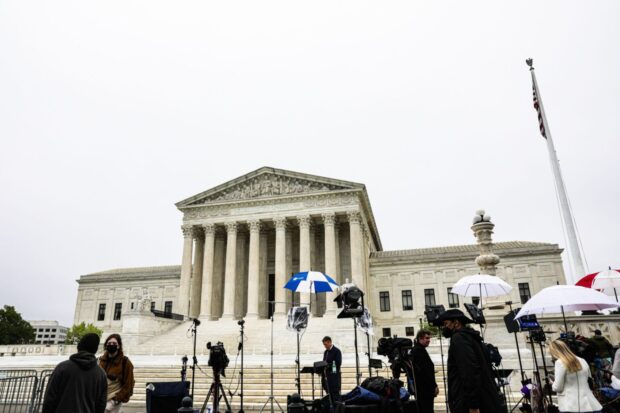The U.S. Supreme Court will decide whether social media companies can be sued over targeted content recommendations, agreeing to hear an appeal from a family that says Alphabet Inc.’s Google bears some of the responsibility for a 2015 ISIS terrorist attack.
The case marks the court’s first test of the broad immunity social media companies have enjoyed under a provision known as Section 230, part of the 1996 Communications Decency Act. Section 230 has become a target of conservatives, including former President Donald Trump, who say it lets left-leaning tech companies censor right-wing voices.
Google is trying to defeat a suit involving Nohemi Gonzalez, a 23-year-old U.S. citizen who was among 129 people killed in coordinated attacks in Paris in November 2015. Gonzalez’s family says Google’s YouTube service, through its algorithms, violated the Anti-Terrorism Act by recommending the terrorist group’s videos to other users.
Courts have interpreted Section 230 as immunizing computer services when they are engaged in activities traditionally performed by publishers, such as deciding whether to display or edit third-party content. But Gonzalez’s family says recommendations are a different matter.
‘Enormous’ Importance
“Whether Section 230 applies to these algorithm-generated recommendations is of enormous practical importance,” the family argued in the appeal. “Interactive computer services constantly direct such recommendations, in one form or another, at virtually every adult and child in the United States who uses social media.”
Google says YouTube at the time of the attack used a sidebar tool to queue up videos based on user inputs including browsing history. The company says the only alleged link between the Paris attacker and YouTube was that one attacker was an active user of the video-sharing service and once appeared in an ISIS propaganda video.
“This court should not lightly adopt a reading of section 230 that would threaten the basic organizational decisions of the modern Internet,” Google argued.
Two lower courts, including the San Francisco-based 9th US Circuit Court of Appeals, sided with Google and said the lawsuit should be dismissed.
The court will hear arguments and rule by July. The case is Gonzalez v. Google, 21-1333.
The Supreme Court also agreed to hear a related appeal by Twitter Inc. in a case stemming from a 2017 terrorist shooting in an Istanbul nightclub. In the same ruling that absolved Google for the Paris attacks, the appeals court said Twitter, Google and Meta Platforms Inc.’s Facebook had to face claims that they played a role in the Istanbul attack by failing to identify and remove ISIS materials.
Twitter contends the appeals court improperly expanded the scope of the Anti-Terrorism Act by letting the suit go forward.
The case is Twitter v. Taamneh, 21-1496.
Photo: Members of the media outside the U.S. Supreme Court in Washington, D.C. Photographer: Valerie Plesch/Bloomberg





















 Chubb CEO Greenberg on Personal Insurance Affordability and Data Centers
Chubb CEO Greenberg on Personal Insurance Affordability and Data Centers  Execs, Risk Experts on Edge: Geopolitical Risks Top ‘Turbulent’ Outlook
Execs, Risk Experts on Edge: Geopolitical Risks Top ‘Turbulent’ Outlook  What Analysts Are Saying About the 2026 P/C Insurance Market
What Analysts Are Saying About the 2026 P/C Insurance Market  RLI Inks 30th Straight Full-Year Underwriting Profit
RLI Inks 30th Straight Full-Year Underwriting Profit 
